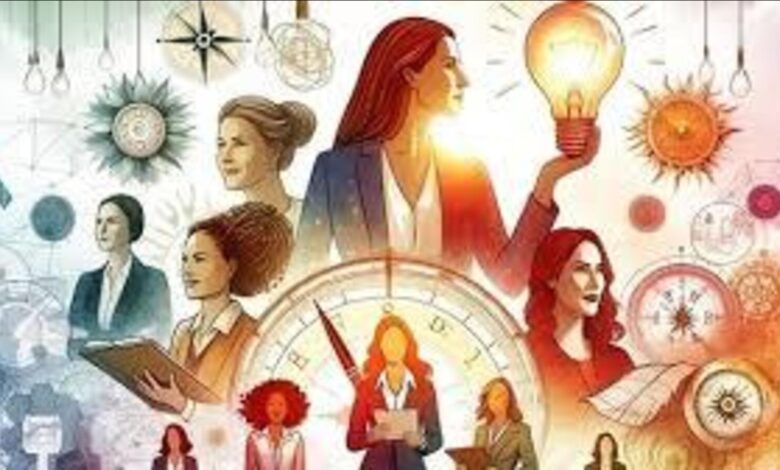Guest Column | Empowering women, empowering India

India stands at a crucial juncture in its journey towards gender equality. While we celebrate the remarkable progress women have made across fields, we cannot turn a blind eye to the challenges that persist. Some of as basic as achieving financial independence, gender equality at home and work, and safety in the digital world. This is just the tip of the iceberg in ensuring holistic growth and societal transformation for Indian women.
At the National Commission for Women (NCW), our mandate is to protect and promote women’s rights through policy interventions and strategic initiatives, empowering women to realise their potential.
Financial independence
Economic independence is the cornerstone of women’s empowerment. I have seen this truth unfold countless times, whether it’s a woman starting her own business or breaking barriers in a corporate boardroom. The first step to breaking the shackles of any domestic violence for a woman is her financial independence. The Pradhan Mantri Mudra Yojana has been pivotal for a lot of women. With just a modest loan and a lot of determination, women have taken the first step to a new life.
The NCW also works on skill development and entrepreneurship opportunities. Women have been important contributors to the farming sector, but due to lack of market knowledge, they are often neglected by patriarchs of the family in being the decision-makers for the crop. The commission has held training workshops for women to provide them knowledge and tools, such as geospatial planning, and empowering them as leaders in agriculture to sell their crops and be the decision-makers.
When women are financially independent, they uplift not only themselves but also their families and communities.
Digital literacy
As India embraces digitalization, many women still rely on male family members to perform basic online tasks, such as booking gas cylinders, due to a lack of digital literacy. Empowering women to navigate the digital world independently is crucial, ensuring they no longer have to depend on others for simple transactions. However, the rise in cyber harassment, online abuse, and digital fraud disproportionately affects women, deterring them from fully participating in the digital economy. It is vital to equip women with the necessary skills and safeguards to navigate the online world safely and confidently.
Equality in leadership
I was recently at an event where I looked around the room and realised that the number of women CEOs compared to men wasn’t even a figure worth calculating. It was a stark reminder of how far we still have to go in gender equality in leadership. It is not just about shattering glass ceilings; it’s about breaking down walls that have stood for far too long.
We are actively advocating gender equality in leadership and decision-making roles, knowing that inclusive leadership is essential for sustainable development. But advocacy alone isn’t enough. We need to equip women with the tools and confidence to rise to the top.
This is why the commission is always forthcoming in collaborating with industry leaders, educational institutions, and civil society organisations to create mentorship programmes and leadership training initiatives.
Safety at work
As the chairperson, I cannot ignore the safety of women who want to go out of their homes to work. There are systemic challenges that often discourage women from working, whether it is as a domestic worker or a salaried employee. Effective implementation of the Prevention of Sexual Harassment (POSH) Act needs to be ensured to make workplaces safe for women, thus promoting their career growth. No woman should have to choose between her safety and her ambition. Strict enforcement of POSH policies and ensuring that internal committees are in place will be a significant step in adding women to the workforce at an equal level.
Changing mindsets
Since 2014, the Maternity Benefit Act in India has undergone significant changes aimed at supporting working mothers. The most notable amendment came in 2017 when the paid maternity leave was extended from 12 weeks to 26 weeks, making it one of the most progressive policies globally. Provisions were introduced for crèche facilities and work-from-home options, enhancing the support system for new mothers. However, despite these positive changes, the extended leave period has unintentionally contributed to biases in hiring and promotions, leading to fewer leadership opportunities for women. This highlights the need for a more inclusive approach from all employers, ensuring that maternity benefits are seen as a strength rather than a drawback. Changing mindsets is crucial to supporting women in balancing motherhood and leadership roles, as these are not mutually exclusive. The journey towards gender equality in leadership is long, but it is a journey worth taking. We owe it to the women who came before us and to the girls who will follow.
Empowering women is not just about addressing immediate needs but about creating a society that values and respects gender equality. My vision is to contribute to the idea of Viksit Bharat, where women can thrive without fear or prejudice, where they can pursue their dreams and contribute to nation-building.
By investing in women, we invest in the future of our nation. I am determined to see that future come to life. chairperson-ncw@nic.in
The writer is chairperson of the National Commission for Women. Views expressed are personal.
Source link




